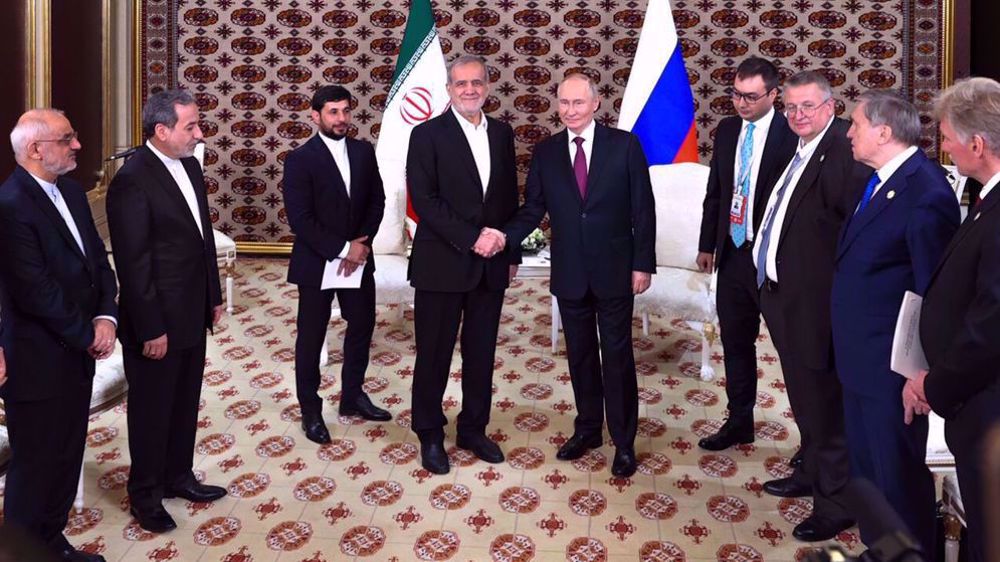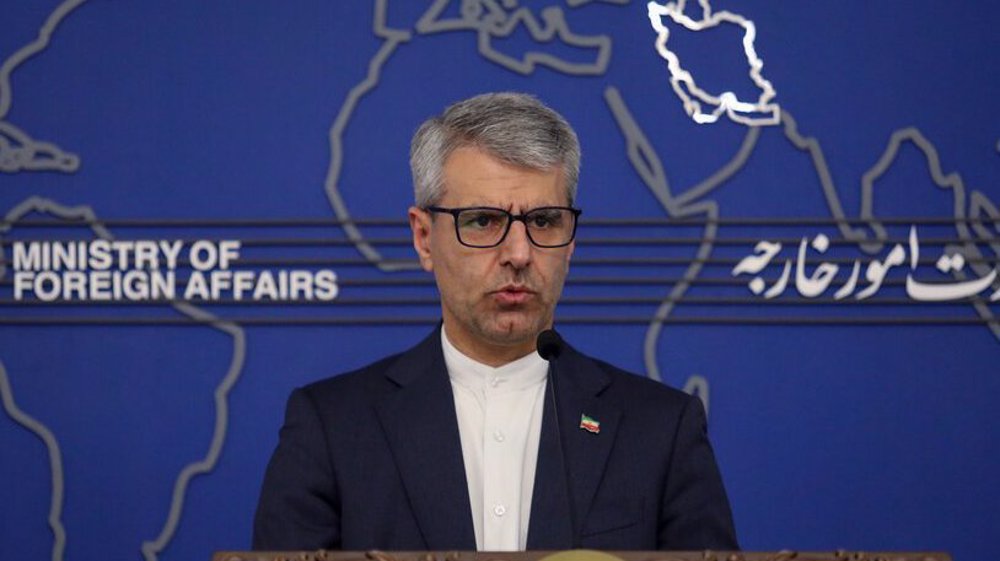Iran to reduce JCPOA commitments until interests secured: Deputy FM
Iranian Deputy Foreign Minister Abbas Araqchi says Tehran will continue to scale back its commitments under a multilateral 2015 nuclear deal until its legal demands are met by the European co-signatories.
“As we have said, we will continue to reduce our commitments to the deal until Europeans secure Iran’s interests under the deal,” Araqchi told reporters in the Austrian capital of Vienna on Sunday.
He was speaking following a meeting of the Joint Commission of the Joint Comprehensive Plan of Action (JCPOA), the official name of the nuclear deal inked in 2015 between Iran and six world states —France, Britain, the US, Russia and China plus Germany.
The US later withdrew last year and re-imposed the anti-Iran sanctions it had lifted under the JCPOA, throwing doubt on the future of the international accord.
The Europeans initially vowed efforts to protect Iran against the bans and keep the JCPOA alive, but they failed to make good on the pledge, prompting Tehran to resort to its legal right to respond and suspend the implementation of some of its commitments under the agreement on a stage-by-stage basis.
The Vienna meeting was held to address the dispute that broke out between Iran and the European co-signatories in the aftermath of Washington’s exit.
Commenting on the meeting, Araqchi said “the atmosphere was constructive. Discussions were good. I cannot say that we resolved everything, I can say there are lots of commitments to the JCPOA and its survival.”
The Joint Commission’s previous meeting was held on June 28, more than a month after Iran began its first stage of retaliatory commitment reductions, which Tehran says are only meant to restore balance between its rights and obligations.
The moves do not technically violate the agreement but signals that Iran’s patience is wearing thin. Iran says its measures will be reversed as soon as Europe fulfills its side of the agreement.
EU: Iran deal should be preserved
In a statement issued after the meeting, Secretary General of the European External Action Service (EEAS) Helga Maria Schmid described the JCPOA as “a key element of the global nuclear non-proliferation architecture, endorsed unanimously by UN Security Council Resolution 2231,” stressing the necessity of keeping the deal alive.
“In view of recent concerning statements and developments, participants recalled the key importance of continued full and effective implementation of the agreement by all sides. At the same time, participants recalled that the lifting of sanctions is an essential part of the agreement and reviewed their respective commitments in this regard. They also took stock of respective efforts aimed at mitigating the negative impact of US withdrawal and re-imposed US sanctions, actions for which they have repeatedly expressed deep regret,” the statement added.
The statement pointed to a non-dollar direct payment system designed by Europe to circumvent Washington’s anti-Iran bans, saying, “France, Germany and the United Kingdom informed participants that INSTEX had been made operational and available to all EU Member States and that the first transactions are being processed.”
China: All parties seek to safeguard JCPOA
The head of the Chinese delegation, in turn, said all the signatories to the JCPOA intended to safeguard the landmark accord and strongly opposed Washington’s decision to unilaterally re-impose sanctions on Tehran.
“All sides have expressed their commitment to safeguard the JCPOA and to continue to implement the JCPOA in a balanced manner,” Fu Cong, director general of the Department of Arms Control at China's Foreign Ministry told journalists.
“All sides have expressed their strong opposition against the US unilateral imposition of sanctions,” he added.
Russia criticizes US bans
Meanwhile, Mikhail Ulyanov, Russia’s permanent representative to international organizations in Vienna, also commented on the meeting.
“The Joint Commission on #JCPOA discussed in Vienna on July 28 the current state of affairs with special emphasis on nuclear and economic aspects of #IranDeal,” Ulyanov wrote in a post on his Twitter account.
The Joint Commission on #JCPOA discussed in Vienna on July 28 the current state of affairs with special emphasis on nuclear and economic aspects of #IranDeal. It is obvious that US sanctions negatively affect implementation. However all participants are fully committed to JCPOA.
— Mikhail Ulyanov (@Amb_Ulyanov) July 28, 2019
“It is obvious that US sanctions negatively affect implementation. However all participants are fully committed to JCPOA,” he noted.
VIDEO | Israel, Hamas ceasefire agreement: Closer than ever
VIDEO | Gaza ceasefire to be put in place under resistance conditions
Hot water and sewage: Palestinians share harrowing tales of torture in Israeli prisons
VIDEO | Thousands evacuated in Ethiopia amid earthquakes, volcanic eruption fears
Revealed: Israeli ministers eye restoration of illegal settlements in Gaza through genocide
How Los Angeles’ pistachio tycoons facilitated and profited from wildfires
Iraqi PM: Iran was in Syria to fight terrorism; presence requested by Damascus
Hamas: Israel's massacre in Jenin camp won’t break resistance












 This makes it easy to access the Press TV website
This makes it easy to access the Press TV website